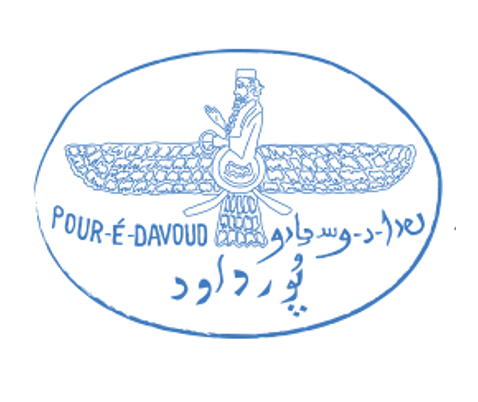
Due to the continued risks posed by the coronavirus pandemic, all Pourdavoud Center events for Winter Quarter 2021 will be hosted virtually via Zoom. Professionally edited videos of all lectures will continue to be hosted in the Pourdavoud Center Video Library, which will be updated regularly. Our Winter 2021 events include:
Pourdavoud Center Lecture Series: Michael Jackson Bonner
Wednesday, December 2, 2020 at 4:00pm Pacific
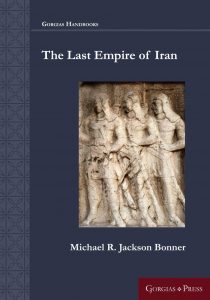
Sasanian Iran: A Personal View
This talk will focus on topics included in Dr. Bonner’s new book, The Last Empire of Iran, a narrative history of Sasanian Persia. Throughout this lecture, Dr. Bonner will share with the audience the impetus for writing this book. The principle motivation was to portray the Sasanian state as the great world power that it was and to situate it properly between Rome and the nomad powers of Inner Asia. It addresses the classicising and Perso-Arabic historiographical traditions, but special emphasis has also been given to Armenian and Syriac sources. Discussion will cover some of the key themes of the book, including: the origins of the Sasanian state; the wider context of Eurasian history; interactions between Iran and the world of the steppe; and, finally, historiographical problems and the use of sources.
Please register for this event here.
Pourdavoud Center/Amuzegar Lecture Series: Afshin Marashi
Wednesday, January 13, 2021 at 4:00pm Pacific
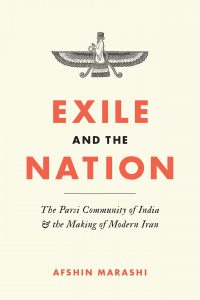
The Parsi Community of India and the Making of Modern Iran
This book talk will provide an overview of Exile and the Nation: The Parsi Community of India and the Making of Modern Iran (University of Texas Press, 2020). In the aftermath of the 7th century Islamic conquest of Iran, large numbers of Zoroastrians departed for India. Known as the Parsis, they slowly lost contact with their ancestral homeland until the 19th century, when stream-powered sea travel and the philanthropic efforts of wealthy Parsi benefactors sparked a new era of interaction between Parsis and Iranians. Tracing the late 19th and early 20th century cultural and intellectual exchange between Iranian nationalists and India’s Parsi community, Exile and the Nation shows how this interchange led to a collective re-imagining of Parsi and Iranian national identity and to the revival of antiquity in 20th century Iran thought.
Please register for this event here.
Pourdavoud Center Lecture Series: Jason Schlude
Friday, January 22, 2021 at 4:00pm Pacific

Book Talk: Rome, Parthia, and the Politics of Peace
This volume offers an informed survey of the problematic relationship between the ancient empires of Rome and Parthia from c. 96/95 BCE to 224 CE. Schlude explores the rhythms of this relationship and invites its readers to reconsider the past and our relationship with it.
Some have looked to this confrontation to help explain the roots of the long-lived conflict between the West and the Middle East. It is a reading symptomatic of most scholarship on the subject, which emphasizes fundamental incompatibility and bellicosity in Roman–Parthian relations. Rather than focusing on the relationship as a series of conflicts, Rome, Parthia, and the Politics of Peace responds to this common misconception by highlighting instead the more cooperative elements in the relationship and shows how a reconciliation of these two perspectives is possible. There was, in fact, a cyclical pattern in the Roman–Parthian interaction, where a reality of peace and collaboration became overshadowed by images of aggressive posturing projected by powerful Roman statesmen and emperors for a domestic population conditioned to expect conflict. The result was the eventual realization of these images by later Roman opportunists who, unsatisfied with imagined war, sought active conflict with Parthia.
Rome, Parthia, and the Politics of Peace is a fascinating new study of these two superpowers that will be of interest not only to students of Rome and the Near East but also to anyone with an interest in diplomatic relations and conflict in the ancient world and today.
Please register for this event here.
Pourdavoud Center Lecture Series: Nikolaus Overtoom
Wednesday, February 3, 2021 at 4:00pm Pacific
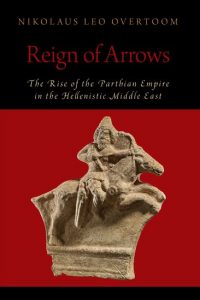
Reconsidering the Emergence of the Parthian State: The Crisis of the 240s-230s BCE in the Hellenistic Middle East
Nikolaus Overtoom’s study of the rise of the Parthian Empire, Reign of Arrows: The Rise of the Parthian Empire in the Hellenistic Middle East, brings a new perspective to this important development in the history of the Hellenistic Middle East. By emphasizing the changing international-systems elements that led to the expansion of the Arsacid kings, Overtoom allows scholars to develop a more sophisticated view of how this expansion occurred, with less causal emphasis merely on the warlike nature of Parthian society or the personalities of individual rulers — important though these were. This monograph draws on a wide variety of sources to explain the political and military encounters that shaped the international environment of the Hellenistic Middle East from the middle third to the early first centuries BCE. This study combines traditional historical approaches, such as source criticism and the integration of material evidence, with the incorporation of modern international relations theory to better reconstruct the rise of the Parthians (or Arsacids) to dominance over their Greek, Persian, and nomadic neighbors in the ancient Middle East.
Please register for this event here.
Pourdavoud Center Lecture Series: Carlo G. Cereti
Friday, February 19, 2021 at 11:00am Pacific
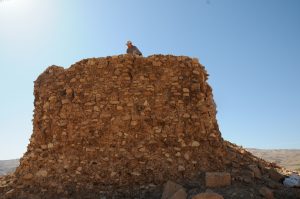
Narseh’s Diadem: Religion, royalty and power under the early Sasanians
This talk focuses on the Sasanian king Narseh (293-302 CE), who celebrated his accession to the throne through the bilingual inscription (Middle Persian and Parthian) and commemorative monument built in Paikuli, the site where the activities of the archaeological mission of Sapienza-University of Rome are taking place. The Italian Archaeological Mission to Iraqi Kurdistan (MAIKI – Missione Archeologica Italiana nel Kurdistan Iracheno) began work in the Kurdistan Region of Iraq in 2006, immediately after the last Persian Gulf war.
The mission’s work in Paikuli focuses on the study, reconstruction, and safeguard of the monument and its unique inscription. The team has chosen a holistic approach to the monument joining methodologies belonging to the realm of historical linguistics and philology with those belonging to archaeology. Field campaigns have been organised in 2007, 2008, 2018, and 2019, revealing a number of previously unknown inscribed blocks; a first volume of these new inscriptions was published in 2014, and the remaining inscriptions will be published in the final report. Other than the inscription itself, the team studied relevant religious aspects, such as Narseh’s devotion to Anāhīd, formal architectural aspects relative to the monument. Moreover, this lecture will briefly present the multiple scientific methodologies and research approaches applied over the years to the study of the territory and its historical evidence. Finally, the presentation will illustrate strategies to promote the monument in the framework of Kurdistan’s cultural heritage, such as the Paikuli Gallery that MAIKI has built in the Slemani Museum and the recent realization of an exhibition at Sapienza, including a tactile 3D printing of one of the Narseh’s sculptures (once decorating the Paikuli monument and now preserved at the Slemani Museum), which offers a clear example of the potential of interaction between field documentation and the application of innovative technologies aimed at promoting full accessibility of Cultural Heritage.
Please register for this event here.

